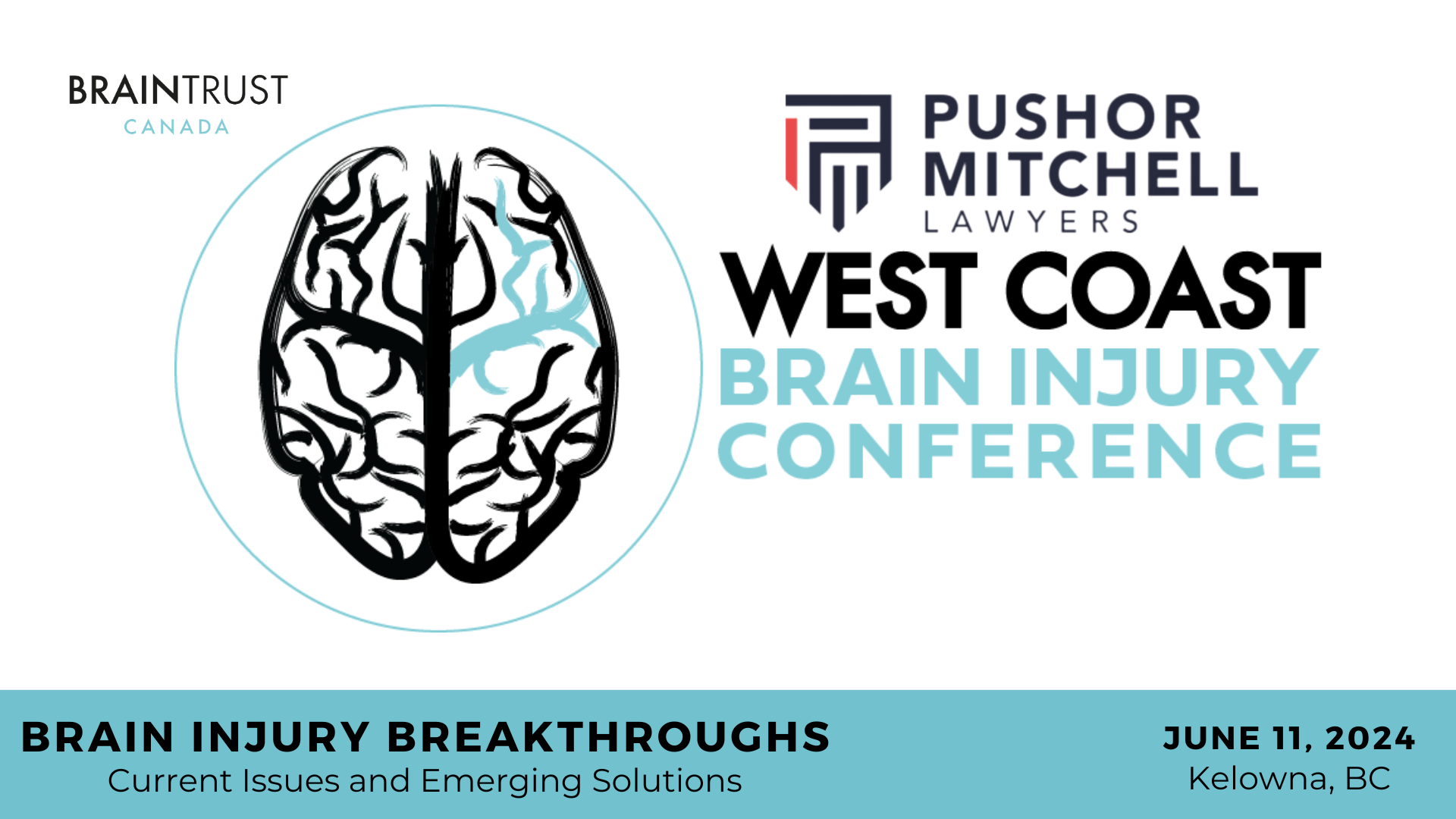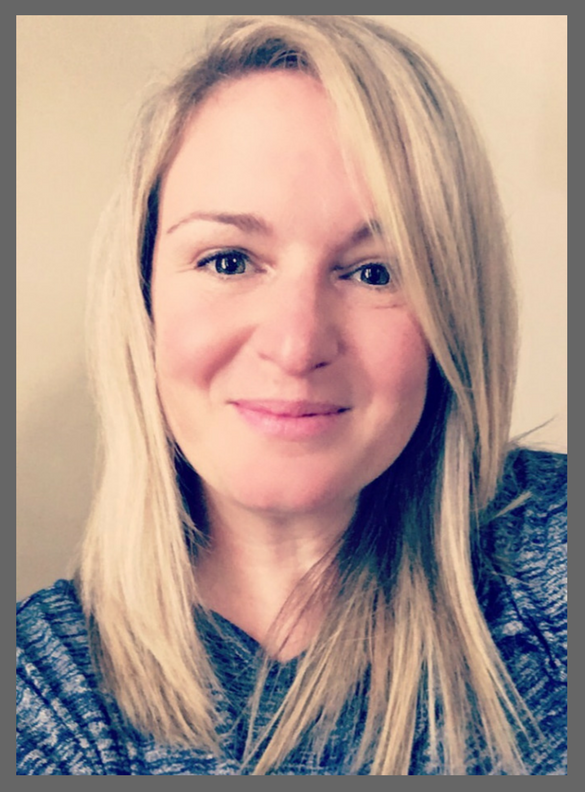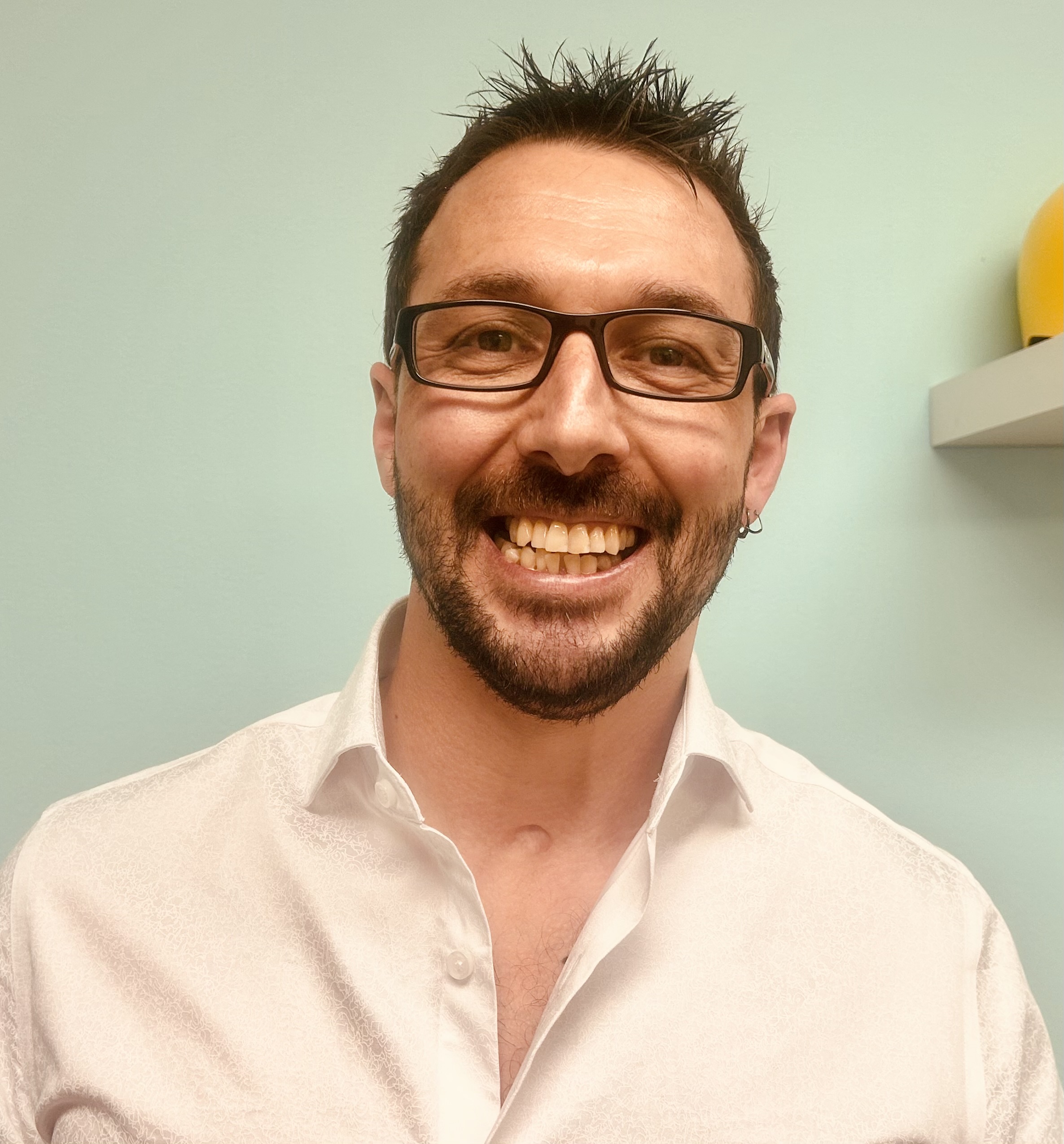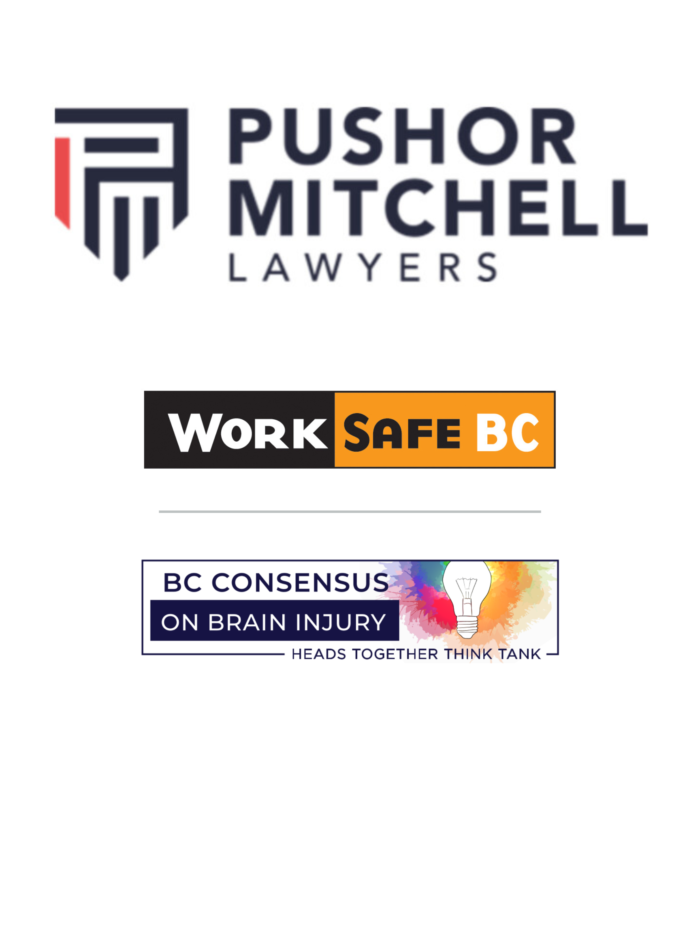
A Little Goes A Long Way
Your gift today is an investment in BrainTrust services that improve the lives of those with brain injury.
Donate TodayMay 3, 2024


The Pushor Mitchell LLP West Coast Brain Injury Conference (WCBIC) 2024 will bring together inspiring change-makers and leading minds in the field of brain injury, public health, and politics for a full day of collaboration, dialogue, and learning.
In line with this year’s conference theme, “Brain Injury Breakthroughs: Current Issues and Emerging Solutions”, our focus is to explore the nexus of brain injury with crucial frameworks such as health, governance, and societal fairness and inclusion. Through insightful discussions, we will examine the criminal justice and healthcare systems from a current perspective and provide understanding into the possibilities that can be enhanced through community partnerships and research informed strategies.
By participating as an attendee, sponsor, or exhibitor, you’ll be actively supporting our endeavor to utilize the strength of community and collaboration to uplift individuals affected by brain injury who often face systemic challenges.
We invite you to join us for this significant and pioneering community gathering. Together, we’re confident that we can foster a community that is fair, compassionate, and inclusive for everyone.
Traumatic Brain Injury: Addressing Inequities
Dr. Angela Colantonio
This presentation will focus on the highlights of a major research program focused on traumatic brain injury in underserved populations in Canada with a sex and gender lens. This will include findings from recently published systematic reviews on rehabilitation for individuals with brain injury relevant to the context of homelessness, the criminal legal system and gender based violence. Resources for these populations will be discussed. The session provides a forum for knowledge exchange among participants with the goal of addressing inequities in underserved populations.
In the Heat of the Moment: Emotion Management Research to Reduce Anger after Brain Injury
Dr. Jade Witten
Uncontrollable anger is a common and serious consequence of acquired brain injury (ABI), affecting the individual and their loved ones. Dr. Jade Witten’s talk will discuss the complications and long-term impacts of ABI, including changes to personality, mental health, and cognition. She will then describe evidence-based practical ways for people with ABI to manage daily situations of anger. Jade will also highlight the clinical implications of her research, and make suggestions for future directions in the field.
Beyond a Single Event: Understanding Traumatic Brain Injury as a Chronic Health Condition
Michelle McDonald
Traumatic brain injury (TBI) is a growing health crisis, impacting millions of Canadians with far-reaching implications on the physical, cognitive, emotional, and socioeconomic well-being of individuals, families, and communities. Mounting evidence reveals that moderate to severe TBI can manifest as a persistent, evolving health condition, giving rise to enduring health challenges and psychosocial complications across the lifespan. This presentation will: review the intersectional nature of brain injury; provide the rationale and benefits for classifying moderate to severe TBI as a chronic condition within Canada’s healthcare system; outline global efforts for a chronic designation for TBI that will align Canadian health policy with emerging global standards and facilitate international collaboration in research, policy development, and public health initiatives; and, most importantly highlight how this designation will lead to a future where the needs of individuals and families are acknowledged, supported, and integrated into comprehensive care frameworks.
Meeting of the Minds: Uniting Efforts to Address Brain Injury Across Government Levels and Bill C-277
Janelle Breese Biagioni
Join Janelle Breese Biagioni, a longstanding brain injury advocate, clinical counsellor, and CEO of the CGB Centre for Traumatic Life Losses, for an enlightening presentation titled “Meeting of the Minds: Uniting Efforts to Address Brain Injury Across Government Levels and Bill C277.”
During this session, Janelle will highlight the critical intersections of brain injury and the necessity for collaboration among all levels of government to address the challenges faced by individuals affected by brain injury. Get ready for an exciting update as Janelle unveils the latest developments in the 125 Days to Say Yes! campaign and outlines plans for phase two of this advocacy tool, set to unfold from September to December 2024.
Learn how every individual in Canada can contribute to the development of a National Strategy on Brain Injury as she leads the discussion on uniting efforts to address brain injury across all levels of government.
The Road to Recovery Initiative: An Overview of Innovations in Substance Use Care Aimed at Supporting Patients with Brain Injuries
Dr. Brittany Dennis
This session will provide an overview of the Road to Recovery Initiative, an innovate model of care being implemented within Providence Health Care, which seeks to address two aspects of BC’s substance use crisis through 1) increasing access to on-demand addiction care; and 2) reorganizing existing clinical services to support patients at every phase of recovery. This session will go further to describe the unique ways the Road to Recovery Initiative seeks to address the needs of patients with brain injuries. This presentation will offer real-world examples that illustrate the tangible impact of the Road to Recovery in transforming lives through breaking down barriers and supporting patients with brain injuries to secure access to the appropriate and necessary recovery-based services.
Jacob’s Story
Shirley Wilson
Wilson was Mum to Jacob Wilson. He was the son of her family of two children, with Maddison being her daughter. Both Maddi and Shirley and his father Paul, have been left to grieve the loss of Jacob since November 11, 2021. At the too-young age of 24, Jacob lost his fight of addiction to overdose by fentanyl.
Jacob, like many other young people, had dabbled in drugs, experimenting. In the early morning of August 31, 2018, Jacob was run over by a pickup truck. The police arrived at Mum’s door to tell her that he was not going to survive as he had severe damage to his body, including his brain. She was to be taken to Abbotsford Regional Hospital and Cancer Centre to sign organ donation papers. By some miracle, he lived. He was airlifted to Royal Columbian Hospital where the first of many doctors came to discuss brain surgery. However, the brain bleeds (2) began to slow and doctors moved on to the other parts of his body in desperate need of repair.
Jacob survived and the family had their beautiful boy for another 3 ¼ years. Still not long enough. Eventually, the mental anguish from his brain injury, leading to increased opioid use, lead to his death.
The family wants change.
Hope
Jules Delorme
Jules highlights the often misunderstood and complex nature of the brain injury. While recounting his journey of recovery over four years, including a five-month coma and extensive rehabilitation at various facilities, ultimately achieving independence. Putting emphasis on the importance of proper rehabilitation and support systems in allowing TBI survivors to reclaim their lives and roles, particularly as parents. Despite challenges, Jules find profound positive transformation in his outlook on life and relationships. Jules puts express gratitude to supportive organizations, healthcare professionals, and his family, especially son, whom Jules credits as his motivation. Jules advocates for greater awareness, support, and funding for TBI rehabilitation, challenging misconceptions and highlighting the transformative potential of proper care.
Colin Edstrom
Brain injuries can be difficult to manage in the workplace. Individuals want to return to work for the normalcy, sense of identity, and self-worth. Employers need individuals to perform work on their behalf. Sometimes there is a tension between these two objectives. This presentation will explore employee and employer rights when dealing with brain injuries in the workplace.








Kelowna, BC
Address:
Delta Grand Okanagan Resort
1310 Water Street
Kelowna, BC V1Y 9P3


